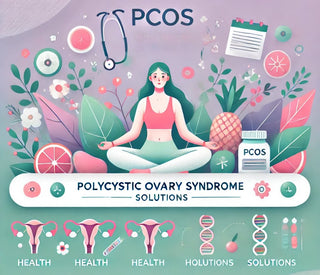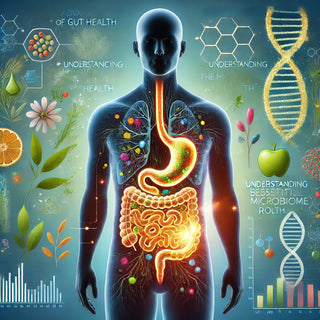Gut health has emerged as a critical area of research, with scientific studies increasingly revealing the profound influence the gut microbiome has on overall health. The gut is home to trillions of microorganisms—bacteria, viruses, fungi, and other microbes—that play an essential role not only in digestion but also in immunity, metabolism, and even mental well-being. This article delves into the science of gut health, explores the implications of a balanced microbiome, and provides evidence-based strategies to optimize gut function. For health practitioners and the scientifically minded, understanding the microbiome is key to promoting holistic health.
The Gut Microbiome: An Overview
The human gastrointestinal tract is inhabited by a diverse community of microorganisms, collectively known as the gut microbiota. These microbes, which include bacteria, archaea, fungi, and viruses, are essential for maintaining numerous physiological functions. The entire collection of microbial genomes, referred to as the microbiome, plays a central role in processes like digestion, immune modulation, and nutrient absorption.
Each individual’s microbiome is unique, shaped by factors such as diet, lifestyle, genetics, and environmental exposure. However, a common feature of a healthy microbiome is microbial diversity. A balanced and varied microbiome is associated with improved metabolic health, a stronger immune system, and better mental health outcomes. In contrast, reduced microbial diversity has been linked to conditions like Irritable Bowel Syndrome (IBS), inflammatory bowel diseases (IBD), and even neuropsychiatric disorders.
The Scientific Connection Between Gut Health and Overall Wellness
Recent research underscores the far-reaching impact of gut health on overall wellness. Here are some of the most well-established ways in which the gut microbiome influences various aspects of health:
- Immune Function: A healthy gut microbiome supports the immune system by regulating immune responses and promoting tolerance to beneficial microbes and foods. Dysbiosis, or an imbalance in gut microbes, has been implicated in autoimmune diseases and inflammatory disorders.
- Brain Health: The gut-brain axis, a bidirectional communication network between the gut and the brain, highlights the influence of gut microbes on mental health. Gut bacteria produce neurotransmitters like serotonin and GABA, which are critical for regulating mood and cognition. Research suggests that gut imbalances can contribute to depression, anxiety, and even neurodegenerative diseases.
- Nutrient Absorption and Metabolism: The microbiome is integral to the digestion and absorption of essential nutrients. It helps break down complex carbohydrates, synthesize vitamins (including B vitamins), and regulate fat storage. An imbalance in gut bacteria can impair nutrient absorption, leading to deficiencies and metabolic disturbances.
Identifying an Unhealthy Gut: Signs and Symptoms
Health professionals must be aware of the symptoms that may indicate a compromised gut microbiome. A range of clinical manifestations can point to gut dysbiosis:
- Gastrointestinal Symptoms: Common signs include bloating, excessive gas, diarrhea, constipation, or changes in bowel habits. These digestive issues often arise from an imbalance in gut bacteria, which affects nutrient absorption and the digestion of food.
- Unexplained Weight Fluctuations: A disrupted microbiome can interfere with the regulation of blood sugar, fat storage, and metabolism. As a result, individuals with an unhealthy gut may experience unintended weight gain or loss.
- Skin Conditions: There is growing evidence linking gut health with skin disorders such as eczema, acne, and psoriasis. Inflammation in the gut can lead to the release of proteins into the bloodstream, triggering immune responses that manifest as skin irritation.
Evidence-Based Approaches to Enhancing Gut Health
Given the vital role of the microbiome in health, it is essential to adopt evidence-based strategies to optimize gut function. Here are seven scientifically supported ways to promote gut health:
- Manage Stress: Chronic stress is known to disrupt gut function by altering the gut-brain axis and slowing digestion. High-stress levels can promote the overgrowth of harmful bacteria while reducing the diversity of beneficial microbes. Practices such as mindfulness, meditation, and relaxation techniques can help manage stress and support a healthy gut.
- Limit Alcohol Consumption: Excessive alcohol intake can disrupt the balance of gut bacteria, reducing the abundance of beneficial microbes like Lactobacillus and Bifidobacterium while encouraging the growth of pathogenic bacteria. Reducing alcohol consumption can restore microbial balance and prevent gut inflammation.
- Exercise Regularly: Physical activity has been shown to enhance microbiome diversity. Moderate exercise stimulates the production of butyrate, a short-chain fatty acid that promotes gut motility, reduces inflammation, and supports immune function. Encouraging regular exercise can have a direct impact on gut health.
- Consume Both Soluble and Insoluble Fibers: Dietary fiber is a critical component of a gut-friendly diet. Insoluble fiber, found in whole grains, vegetables, and wheat bran, provides bulk to stool and supports bowel regularity. Soluble fiber, present in oats, fruits, and legumes, is fermented by gut bacteria to produce beneficial compounds. Including both types of fiber promotes healthy digestion and supports a diverse microbiome.
- Reduce Sugar and Processed Food Intake: Diets high in refined sugars and processed foods can promote the growth of harmful gut bacteria, reduce microbial diversity, and contribute to gut inflammation. A balanced diet rich in whole foods and low in sugar helps maintain a healthy microbiome and reduces the risk of gut-related disorders.
- Eat a Variety of Fruits and Vegetables: A colorful array of fruits and vegetables provides polyphenols, antioxidants, and other plant compounds that support gut health. Polyphenols have been shown to increase the abundance of beneficial microbes and improve microbiome diversity. Health experts recommend aiming for at least 30 different plant-based foods each week to support a thriving microbiome.
- Include Fermented Foods: Fermented foods like kimchi, kefir, sauerkraut, and yogurt are rich in probiotics—live bacteria that can directly benefit the gut. Regular consumption of fermented foods supports a healthy balance of gut microbes, improving digestion and enhancing overall gut function.
Conclusion
The gut microbiome is central to many aspects of health, from immune function and brain health to digestion and metabolism. For health practitioners, understanding the science of gut health is crucial for developing holistic approaches to patient care. By implementing strategies such as stress management, dietary changes, regular exercise, and the inclusion of fermented foods, we can optimize gut function and, by extension, overall health. A balanced and diverse microbiome is essential for achieving and maintaining wellness, and ongoing research will continue to unveil the depth of the connection between gut health and disease prevention.
For individuals experiencing gut-related issues, it is important to consult with a healthcare professional for diagnosis and personalized treatment plans. A comprehensive approach to gut health can significantly improve quality of life and reduce the risk of chronic diseases.
References:
- "Gut Microbiome and Its Role in Health and Disease." Nature Reviews Microbiology.
- "Gut Microbiota: A New Way to Improve Health and Wellness." Frontiers in Microbiology.
- "The Impact of Diet on the Human Microbiome." Cell Host & Microbe.
- "The Role of Gut Microbiota in Mental Health." Nature Microbiology.
- "Exercise and the Gut Microbiome: How Physical Activity Influences Gut Health." Gut Microbes.







